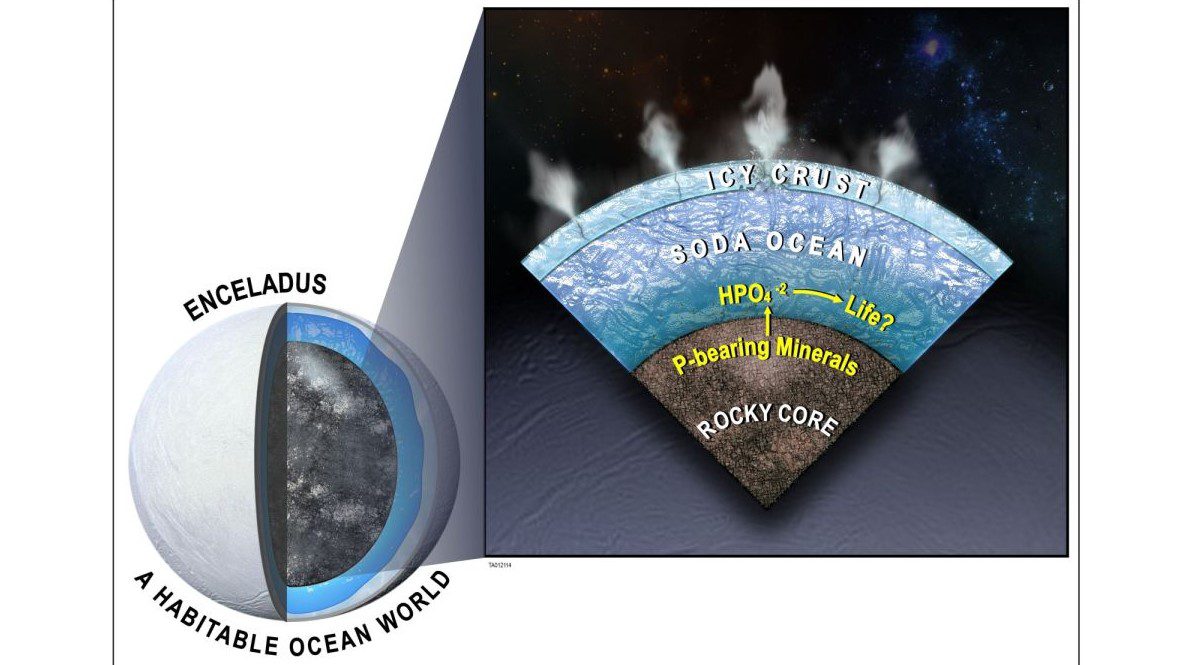According to a recent study, the water underneath Saturn’s moon Enceladus may be filled in phosphorus, a key feature of life as we know it. That could solve long-standing quests about the Universe, as well.
The biochemistry of life depends critically on phosphorus. It works with sugars, for example, to give DNA a backbone that connects the double helix’s four nucleobases.
Read out below all the intriguing details about Enceladus.
What Does Enceladus Hide?
Jihua Hao led the new study, a senior research scientist at the University of Science and Technology of China, and Christopher Glein, the study co-author and a senior research scientist at the Southwest Research Institute in San Antonio.
Hao and Glein’s team recreated how phosphorus-rich minerals called phosphates dissolve into the ocean from the stony core of Enceladus using novel models based on the most recent data. What they found is genuinely intriguing.
“While the bio-essential element phosphorus has yet to be identified directly, our team discovered evidence for its availability in the ocean beneath the moon’s icy crust,” stated Glein.
The researchers discovered that the dissolving rate of a mineral known as orthophosphate was significantly faster than previously thought, enabling it to fill the ocean with a level high enough to support life in just tens of thousands of years. And there’s more.
Ocean water contains bicarbonates, whose chemical characteristics make it possible for phosphates to build in the ocean, which is one reason this high concentration is feasible. That’s quite impressive! Check out below an inner cross-section of Enceladus demonstrating how phosphorus-rich materials may break down into orthophosphate, which might be spewed into space by the geysers but also nourish the ocean:

However, as great as the new study could be, scientists still have a lot to work on because the results are only a hypothesis; in order to confirm that phosphorus is present in the ocean of Enceladus, a follow-up mission would need to actually locate orthophosphate or another phosphorus-derived mineral in the water geysers that frequently erupt from the moon.












Leave a Reply